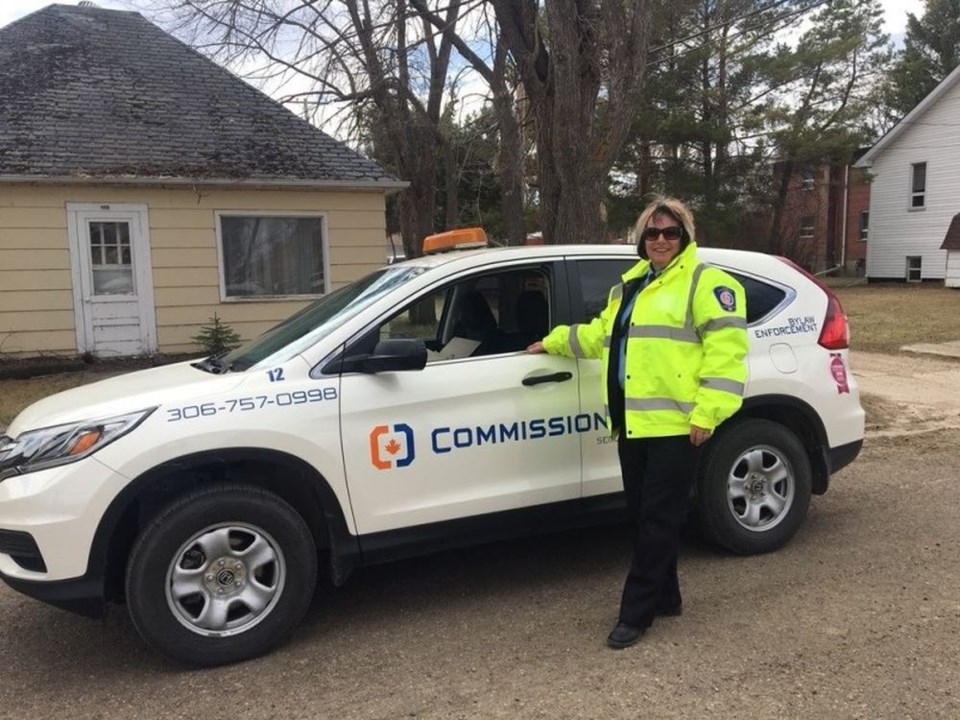With the arrival of spring weather comes a seasonal increase to local bylaw enforcement efforts.
The Commissionaires are under contract to provide Town of Canora with bylaw enforcement services, according to Michael Mykytyshyn, chief administrative officer.
“Bylaw enforcement officers have the authority to enforce many municipal bylaws,” said Mykytyshyn. “But most of their time in Canora is spent dealing with nuisance properties, animal (dogs and cats) control and the odd traffic or zoning violation.”
Town council chose to employ the Commissionaires when they identified a need for increased and consistent bylaw enforcement, said Mykytyshyn. In recent years, the number of infractions and nuisance properties were increasing past the point that could be handled by existing staff.
“Canora has always been known as a well-kept, attractive community,” he said. “A big part of bylaw enforcement is working to eliminate nuisances in order to maintain and improve this reputation. The ultimate goal is to enhance the amenity and safety of the community for residents and visitors. All citizens and property owners have rights regarding the use and care of their properties. However, neighbours have the right to reasonably enjoy their property as well.”
Anything that a resident does, or doesn’t do, that can interfere with their neighbour’s enjoyment of his or her property, can be a bylaw infraction. This can include an untidy yard, unsightly building, a failure to scoop dog litter or parking violations, to name a few.
“Recently, council updated the Nuisance Bylaw to include building standards,” said Mykytyshyn. “What this means is that starting in 2020, bylaw enforcement officials will also turn their attention to buildings that have become unsightly or fallen into disrepair. Residents will be asked to correct these issues under the bylaw. Enforcement can be triggered by a complaint or can begin with a random inspection.”
Initial contact from the officer is usually to educate residents about a bylaw and how to correct or avoid any infractions. After that, residents can receive warnings, either verbal or written.
After one or more warnings (most commonly for nuisance or zoning violations) the Town can issue an order to remedy, which is a legal notice. Under some bylaws, a monetary fine can be issued.
Orders to remedy stipulate what a property owner must do to correct a bylaw violation and specify a deadline. If residents cannot work out a resolution with the town office, these orders can be appealed to town council. After hearing an appeal, council may uphold, modify or extend the order.
“If a property owner does not comply with an order to remedy, the Town can carry out the work specified in the order, and the costs for that work can be added to property taxes,” said Mykytyshyn. “Residents have options when contacted by bylaw enforcement. Most of the time, the easiest course of action is to simply follow the rules. However, at any of these steps, residents are welcome to contact the town office for clarification. Most of the time, a simple phone call and explanation can resolve the issue and help avoid misunderstandings.”
It’s important to remember that all of these steps take time. Once the legal order stage is reached, there are minimum notification times and specific delivery requirements. Depending on the severity of the situation or if it’s a repeat offender, some steps may be expedited. It is preferred that property owners correct any violations on their own. Having the Town carry out an order to remedy is a last resort, said Mykytyshyn.
“It is a common misconception that bylaw enforcement officers are trespassing when they enter onto private property, but they are not. Provincial legislation and municipal bylaws both authorize agents of the Town to enter onto private property for various inspection purposes, and this includes bylaw enforcement officers. Also, anyone who obstructs a bylaw officer is in violation of municipal bylaw.”
Bylaw enforcement can be somewhat subjective and discretion can be involved. However, when hiring the Commissionaires, town council set fairly specific guidelines for the standards that they would like enforced. In other words, the bylaw enforcement officer is carrying out the wishes of town council.
“Complaints are sometimes unfounded,” continued Mykytyshyn. “Upon investigation, the officer may discover that a complainant has unreasonably high standards or is in a dispute with their neighbour and wants to get them into trouble. More often, nuisances are already corrected by the time an inspection is carried out.”
The Commissionaires are easily recognized. They wear uniforms and drive a marked car. They also carry a letter of authorization from the Town.
“It is a common reaction for people who have been visited by the enforcement officer to point out what they perceive as other bylaw infractions,” said Mykytyshyn. “It would be nice to say that the Town achieves 100 per cent compliance with all bylaws all the time. However, that is not very realistic. We work towards it, but unfortunately, bylaw enforcement is an ongoing, never-ending process.”
This will be the third summer that the Town has used the Commissionaires and for the most part, feedback to the increased bylaw enforcement efforts has been positive.
Bylaw inquiries or complaints should be directed to the town office, Mykytyshyn concluded.



